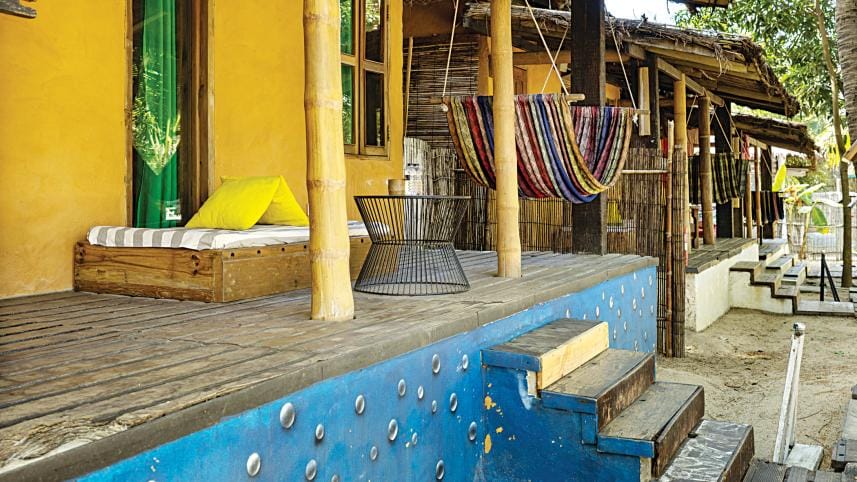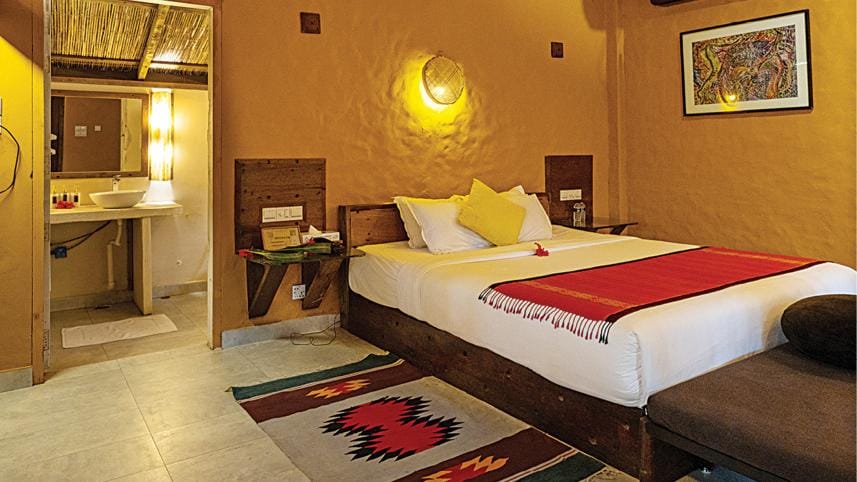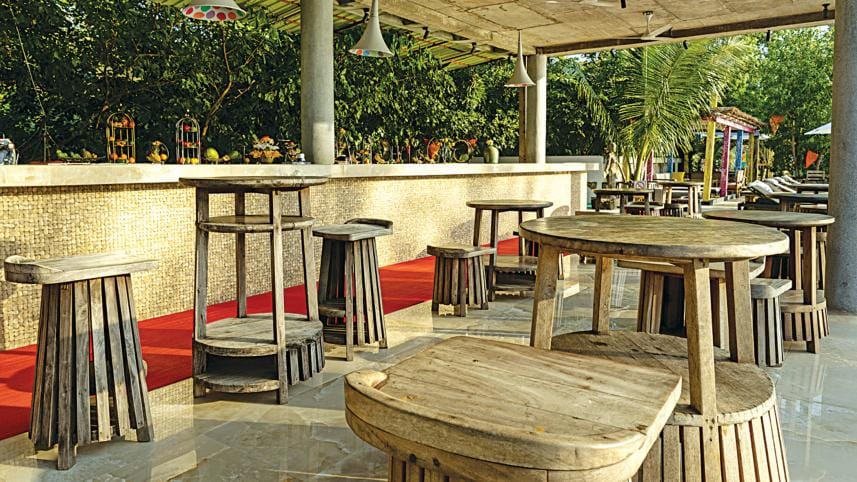Sustainable tourism: A trend worth following

With its sprawling mangrove forest, unbroken beaches, and lush green rolling hills, our country is a gem in the global arena. With this much diversity, we, as a nation, have the potential to be a major tourist destination. However, the rapid growth of tourism is putting pressure on the very environment and hospitable culture that attract visitors to this destination. The problem is obvious: how can tourism increase without endangering communities and fragile ecosystems? Sustainable tourism, a radical new approach that balances expansion with the preservation of the environment and culture is the viable solution.
Importance of sustainable tourism for Bangladesh
Environmental dangers like pollution, deforestation, and climate change are no longer 'conspiracy' theories or left-thinking ideologies. It is very real, and the consequences are already being felt all across the globe and Bangladesh is no exception: with local communities suffering from biodiversity loss, tourism speeding up pollution in delicate ecosystems, and rising sea levels endangering coastal areas.
In a nation like ours, where ecosystems are both rich and vulnerable, sustainable tourism is not only a preference but also essential for the future.
Traditional tourism industry models focus on instantaneous profits, leaving aside the long-term consequences. Uncontrolled human intervention is already beginning to change the natural environment of its prime representative — the Royal Bengal Tiger — in places like the Sundarbans. Similarly, the uncontrolled expansion of tourism in Cox's Bazar is causing the once-pristine beaches to deteriorate. Sustainable tourism can assist in resolving these issues by promoting eco-friendly practices, protecting the biodiversity of the area, and involving local communities in tourism development.

Inspiring journeys
Bangladesh can learn a thing or two from various nations that have embraced the sustainable tourism concept into their development agenda and now reap the reward of thriving tourism.
The travel policy of Bhutan, 'high value, low volume,' shows how a country can balance environmental conservation, cultural preservation, and economic growth at the same time. Iceland, another country known for surreal scenery, has passed legislation that is also environmentally conscious to protect the environment by utilising renewable sources of energy and promoting eco-friendly travel.
Costa Rica, which is quickly becoming the hub of ecotourism, with its eco-lodges nicely tucked away in the lush, verdant rainforests, is raising revenue for local communities while protecting the environment.
We can learn from these achievements and develop similar sustainable tourism models that benefit the country's economy while preserving our environment and culture.

Apparent obstacles
Bangladesh faces several challenges when it comes to implementing sustainable tourism practices. The ignorance of both visitors and local companies about eco-friendly methods and their advantages, is a major problem. Due to a lack of knowledge about the long-term effects, many entrepreneurs continue to engage in environmentally harmful actions.
Furthermore, contrary to popular belief, ecotourism is quite expensive, which may discourage companies from walking down this path. To help lower these expenses, more government initiatives that promote eco-friendly business models are required, such as tax benefits for eco-friendly companies or funding for renewable/sustainable projects.
Finally, infrastructure is desperately needed to enable ecotourism. Many of the tourist attractions in the country lack the infrastructure required to guarantee sustainability, from waste management systems to renewable energy sources. Sustainable tourism practices will continue to be difficult to implement without these developments.

Challenging task but not impossible
One outstanding example of sustainable tourism in action is the efforts of Mermaid Eco Tourism Ltd, more specifically, their Beach and Eco Resorts. Their dedication to sustainability extends well beyond token efforts. You could say it is firmly rooted in their operational model. We spoke to Raxy Dominic Gomes, Senior Manager of Sales & Marketing for Mermaid Eco Tourism Ltd to get an insight into how they operate.
A crucial component of a resort's sustainability plan is how well it can integrate into the surrounding environment. Elaborating on this, Gomes stated — "Before the resort was created, we planted an enormous number of trees in the area. Once the trees grew, the resorts were created around this lush greenery. Because of this, both our resorts are in the midst of pleasant, well-cared-for greenery. Aside from helping to bring down the temperatures in the area, and providing plenty of fresh air, a lot of exotic birds also call Mermaid home.
"Finally, we believe that true sustainable tourism should incorporate all of the surrounding area, and the people living in it. Nearly all our staff are members of the local community. This is important for multiple reasons. For one thing, being locals, they are familiar with the environment here and know how to take care of it better. It also reduces the carbon footprint as there is no long commute. And of course, most importantly, it boosts the local economy. If other hotels and resorts adopt a similar approach, this will boost the employment rate further."

The heart of every sustainable tourism business is recycling and upcycling. And Mermaid is no different.
"We commission well-known artists to make sculptures/artworks with our discarded furniture. We also integrate our broken glasses onto our pavement. We use broken mic shells as décor and lighting fixtures. We even used broken electronic components of a computer to make a chair! In short, nothing at Mermaid ever goes to waste. Every component finds new life as something else," said Gomes.
Can the Government do something?
Government intervention is necessary if we want sustainable tourism to flourish in Bangladesh. The cost-to-entry barrier for businesses would be greatly reduced by policies that offer financial incentives to such businesses, like tax rebates or grants for eco-friendly tourism endeavours. The government can also promote a flourishing sustainable tourist sector by providing financial assistance to companies that have sustainability as high priority.
Additionally, the government can proactively educate the public. The success of sustainable tourism initiatives would be greatly enhanced through awareness campaigns that highlight the advantages of sustainable travel, as well as the implementation of laws that restrict environmental destruction.

Why tourists play a key role
Not everything is up to the businesses. Tourists also have an important duty to make sure that tourism helps the local community and the environment. Little things like selecting eco-friendly lodging, not littering, and honouring local customs can have a big impact on protecting the places they visit.
"You see it often in popular tourist destinations in our country. Walk the Cox's Bazar Laboni Point beach after 4 PM and you will see the sheer amount of litter people casually throw. This sounds 'natural' but I even found discarded bottles and crisp packets in waterfalls deep in some hiking trails! If we don't self-regulate, no amount of initiative will ever be good enough," commented Ahnaf Rahman, an enthusiastic solo traveller.
Mermaid Tourism Ltd tackled the matter with a lead-by-example approach.
"We tackle the littering problem by setting an example. Our resort is always kept clean, not just by our cleaning crew, but by every single employee in the resort, higher-ups being no exception. If we come across some random trash, we usually do not wait. Whoever spots it, properly disposes of it. This lets the guests know that keeping a place clean has nothing to do with social ranking. And in general, when guests see how clean the resort is, they usually self-regulate themselves to not litter," remarked Gomes.
Benefits of sustainable tourism
You might wonder, given all the hassle, enormous cost, and manpower involved in sustainable tourism, how much upside there is for companies and the nation in general. Well, the benefits are numerous.
First and foremost, it is a fact that sustainable tourism protects the environment. That's what would keep ecosystems and resources intact for future generations. Secondly, it is an asset for the country, since sustainable tourism channels a whole lot of investment, promotes local business ventures, and even provides employment opportunities. Besides, equalisation, in terms of benefit sharing and involvement of the local people in tourism, has the potential to reduce inequality and uplift standards of living. Lastly, Bangladesh can market its strong dedication towards environmental awareness so that the whole world can see it as a vacation spot interesting to travellers.
Although it might take quite some time to achieve sustainable tourism, at the end of the day, it would be worth the effort. Emulating the world's best practices and utilising local assets will surely lead us toward a future of tourism that nourishes cultural preservation and environmental concerns.
The question for Bangladesh is not if sustainable tourism is feasible, but rather if we are prepared to adopt it. Although the path ahead may be difficult, the potential benefits — a flourishing, environmentally friendly tourist sector — make the effort worthwhile.
Photo: Shahrear Kabir Heemel
Location: Mermaid Beach Resort




 For all latest news, follow The Daily Star's Google News channel.
For all latest news, follow The Daily Star's Google News channel.
Comments